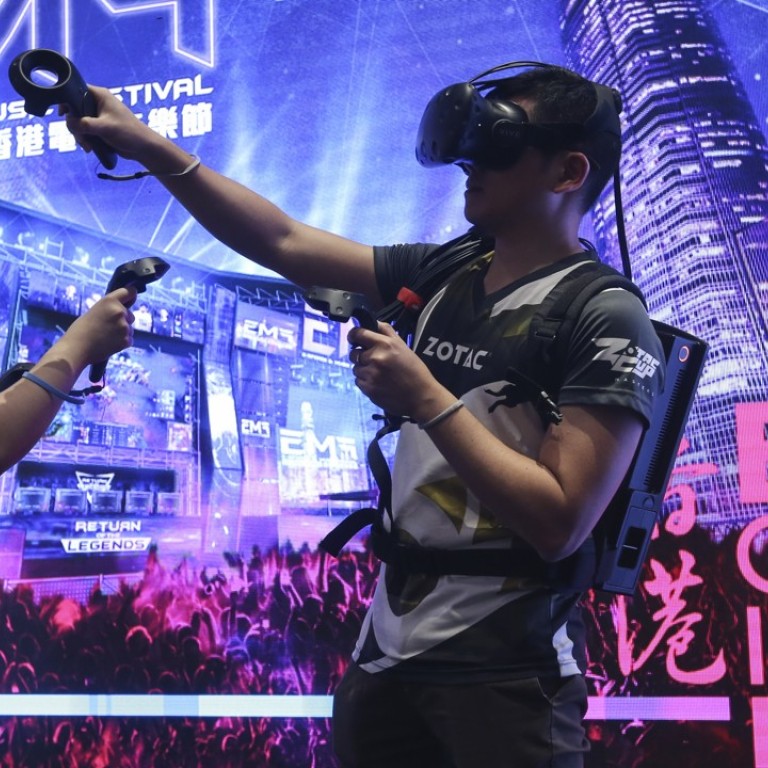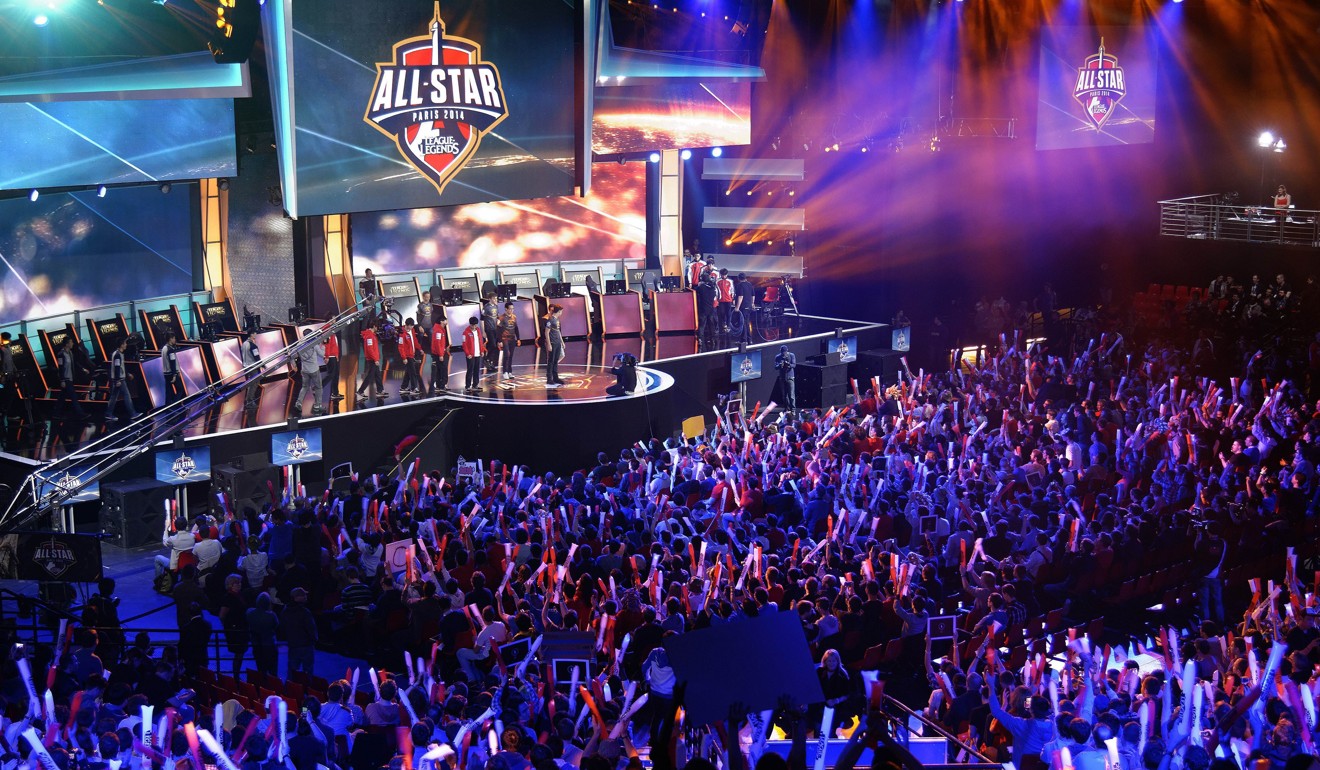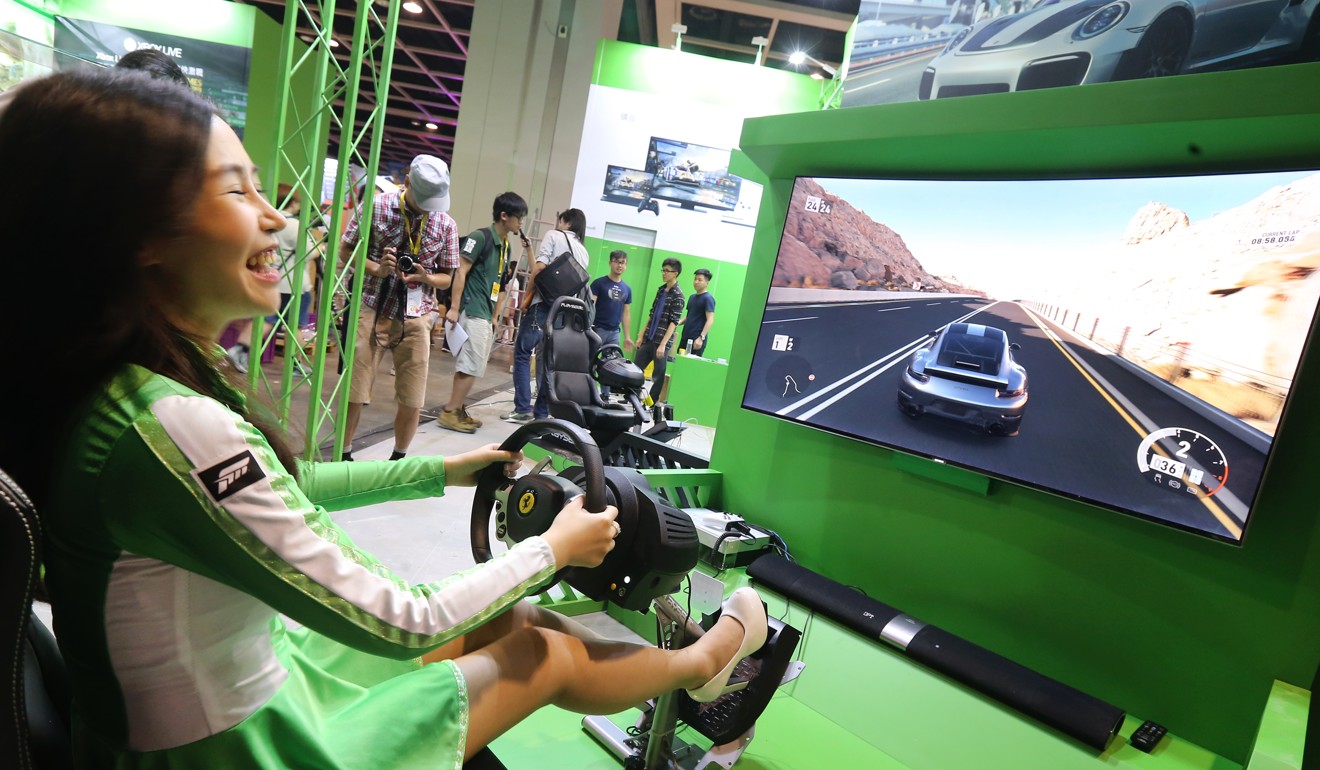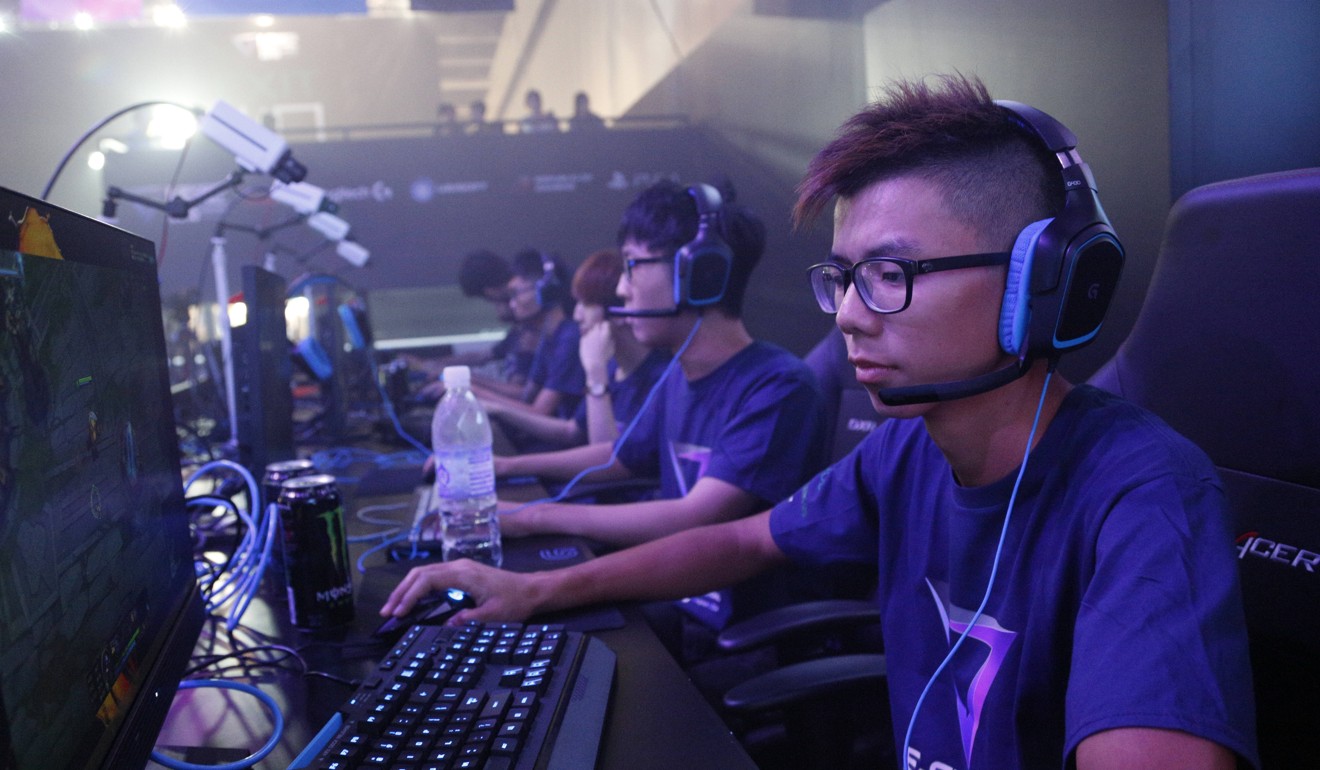
Can Hong Kong cash in on e-sports and win big in global tournaments?
Government and business leaders are warming to the industry, but lack of a local ecosystem and support means city trails rivals overseas
Earlier this year Li invested in popular US gaming peripherals brand Razer, which is set to go public in Hong Kong.
E-sports, or electronic sports, are multiplayer video game tournaments where professional gamers compete for lucrative cash prizes.
Analysts say the potential profits from media broadcasting rights, advertising, sponsorship, merchandise, ticketing and publisher fees, as well as equipment making, can rival real sports leagues.

Revenue from the global e-sports market is forecast to jump 41 per cent year on year to US$696 million this year, with the number of viewers growing by 19.6 per cent to 385.5 million, according to gaming industry research service Newzoo.
With more than half of audiences aged between 21 and 35, e-sports have provided a bridge for big brands to reach this tech-savvy demographic.
This may be why brands like Logitech are willing to throw big money into promoting the industry. Aries Sze, Logitech’s Hong Kong and Macau manager, said half of its marketing costs in the gaming category were spent on sponsoring e-sports events.
Sze said gaming products commanded much higher prices on average and generated better profits. For example, a gaming mouse could be 10 times more expensive than an ordinary one.
The global e-sports trend boosted Logitech’s revenues by more than 40 per cent year on year in the last fiscal year, contributing to 14.1 per cent of overall revenue for the company – up from just 4.4 per cent in 2011, according to financial filings.
Meanwhile, buoyed by the craze, three young Hongkongers have started their own brand, Zenox, selling gaming chairs and tables. One of the founders, Nigel Szeto Hing-ming, said business was brisk and they had sold more than 1,100 chairs in the past year.

Most of Zenox’s customers are young professionals who love playing video games.
Sze said there was huge potential to develop e-sports-related businesses in Hong Kong. But more coordination and training facilities for professional players were essential for the industry to take off.
He said high costs had put many investors off nurturing local gamers. There was also not much support from the government in the past. As a result, few local players could keep pace with others on the international level.
While not many are taking to full-time professional gaming, related businesses are emerging in the city, such as local equipment suppliers, training centres and e-sports-themed cafes.
Some of them can earn about HK$50,000 to HK$60,000 per month
“The business has grown much faster than I had expected,” CEO Man Kin-fung said.
Their five-person crew – formed of girls aged between 18 and 20 years old – has created a buzz among local gamers.
“Some of them can earn about HK$50,000 to HK$60,000 per month,” Man said.
Other than prizes they have won in open competitions, the team also make money through collaboration with brands, such as by testing new products, hosting live-stream shows as well as filming commercials and television programmes, he said.
Team captain Chan Ka-ching, known in the local gaming community as “Deer”, was once paid US$7,000 for doing a two-hour online demonstration on Twitch, a global live streaming video platform for gamers, according to Man.
The attractive income has made many young people realise that they can carve out a career in gaming. Rispy Lau Lai-fong, the youngest member on the Global eSports team, quit school just before the university entrance exam this year to become a professional player.

“My parents were strongly against me playing computer games. But now, they tell me to work hard and play a better game,” the 18 year old said.
All that money and fame for professional players is still short-lived however, as the peak age for gamers is considered to be between 16 and 21.
This is why team head coach Kane Li Chi-hung retired from professional gaming at the age of 22.
“I quit because I was getting old,” the 23 year old said.
Li said many of his fellow players became game analysts, coaches, commentators, and even product developers on the mainland.
However, he added that the ecosystem for e-sports was largely missing in Hong Kong, prompting many promising local players to work elsewhere.

